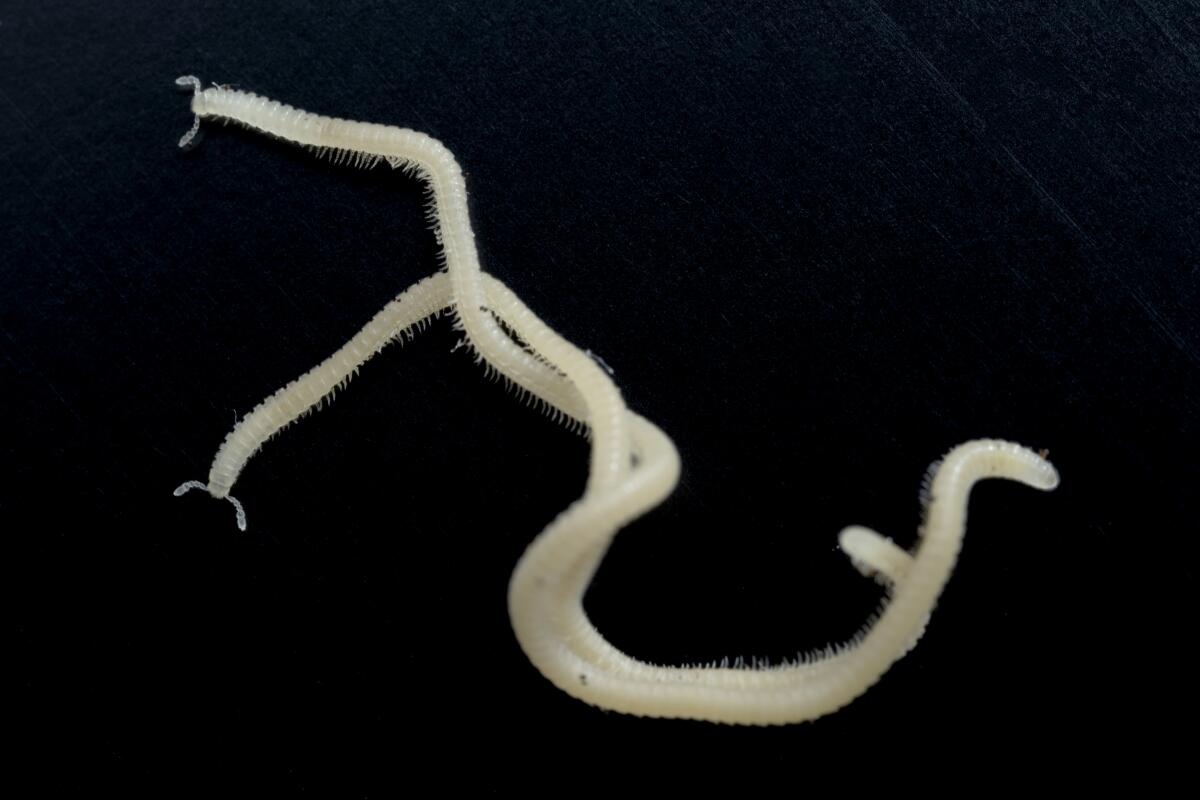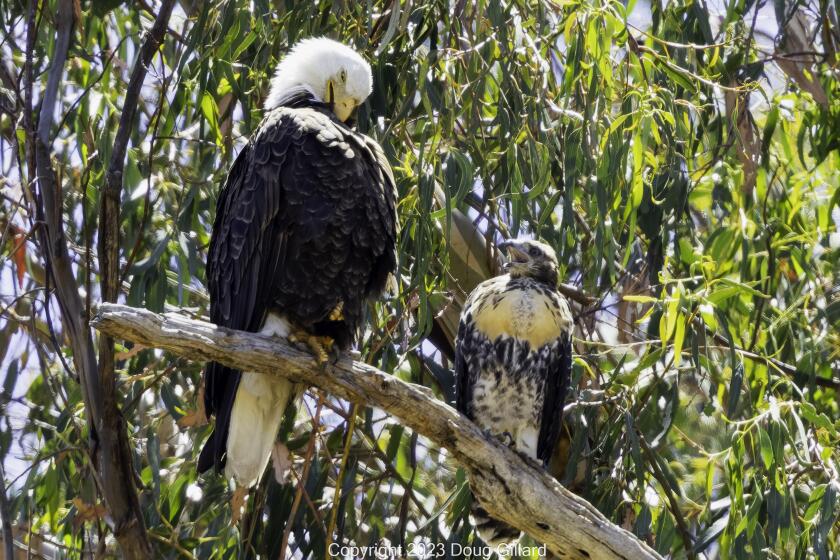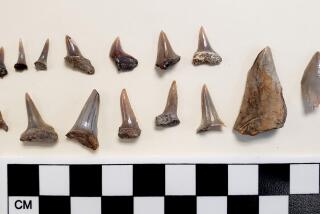Meet the 486-legged creature found in an L.A. area park

A previously unknown species has been discovered lurking in the parks of Los Angeles and Orange counties.
The animal boasts 486 legs and a toothy, Predator-style head. It has the greenish translucence of a glow-in-the-dark toy in daylight, and weaves through the soil as elegantly as an embroiderer’s needle.
But step away from the microscope and the Los Angeles thread millipede (Illacme socal) becomes a lot less intimidating. With the width of a thin mechanical pencil lead and the length of a sewing pin, it’s easy to see how this tiny, thread-like snippet of an invertebrate has gone unnoticed — until now.
An ornery, board-jacking sea otter is terrorizing surfers off the coast of Santa Cruz. An effort is underway to capture the creature.
With the publication late last month of a paper formally introducing the critter, the Los Angeles thread millipede joins roughly 12,000 other named millipede species worldwide.
The discovery is a tiny reminder of the vast kingdom of small animals at the base of the world’s ecosystems, a universe of minuscule creatures at risk of being lost before we can appreciate the essential role they play.
“Literally, these new species are right below our feet,” said Derek Hennen, an entomologist with the Virginia Museum of Natural History who was not involved with the study.
“This really drives home the point that it’s important to preserve these open green spaces and natural habitats as much as we can, because even in an intensely urbanized environment like Los Angeles, you can still find new species in places that people may have just not been looking before.”
The millipede was spotted for the first time in April 2018 at Whiting Ranch Wilderness Park, near Lake Forest, by naturalists Cedric Lee and James Bailey. The two immediately realized they were looking at something unique and posted their find to iNaturalist, the citizen science app.
Across the country, Virginia Tech entomologist Paul E. Marek was browsing the app and noticed their discovery. That Christmas, while visiting his family in Los Angeles, Marek and his wife drove out to Whiting Ranch to see if they could find the same animal.
Millipedes aren’t insects, but arthropod invertebrates more closely related to lobsters and crayfish. This particular genus is small and slow, and bears a striking resemblance to plant root hairs. After carefully removing the carpet of rocks, dead leaves and humus, Marek and his wife scanned the soil for anything pale, slender and longer than 20 mm (0.7 inches), waiting to see if it wiggled.
The specimens they found were gently scooped into plastic vials with a bit of soil and tucked into Marek’s carry-on for the trip back to his lab in Virginia. (“They don’t seem to appear on an X-ray,” he said.)
The story of Tuffy, a baby red-tailed hawk who was kidnapped by a family of bald eagles, has come to a sad end following a failed rescue attempt.
DNA sequencing and close analysis of the millipede’s physical structures confirmed that it was a new species. Back in California, Lee recorded further sightings of the animal at Eaton Canyon Natural Area, in Pasadena. The paper naming the species appeared late last month in the journal ZooKeys; both Lee and Bailey are co-authors.
Millipedes do the unsexy yet essential work of keeping the forests from drowning in their dead. They are detritovores, breaking down dead plant matter for food and excreting nutrients that seed the soil for future growth.
“I kind of think about them as the little garbagemen of the forest,” Marek said. “They just kind of truck around, eat detritus, poop it out, and it’s soil.”
Millipedes have been on the planet for about as long as life has been on terrestrial Earth. According to the fossil record, they were the first land-based animals on the planet to breathe atmospheric oxygen.
They are important yet incredibly vulnerable little creatures: They don’t sting or bite and most, including the Los Angeles thread, are blind. (They do secrete chemicals that apparently taste vile to birds, larger insects and other predators, so at least they have that going for them.)
The discovery of a brand-new species in the soil of a constantly expanding urban area underscores how little we know about the smallest parts of our ecosystem, whose habitats could be paved over before we even understand what we’ve lost, entomologists said.
“It’s a celebration of what’s out there, and a reminder of what we could lose,” said Brian Brown, curator of entomology at the Natural History Museum of Los Angeles County. “We need those small things. They’re important.”









